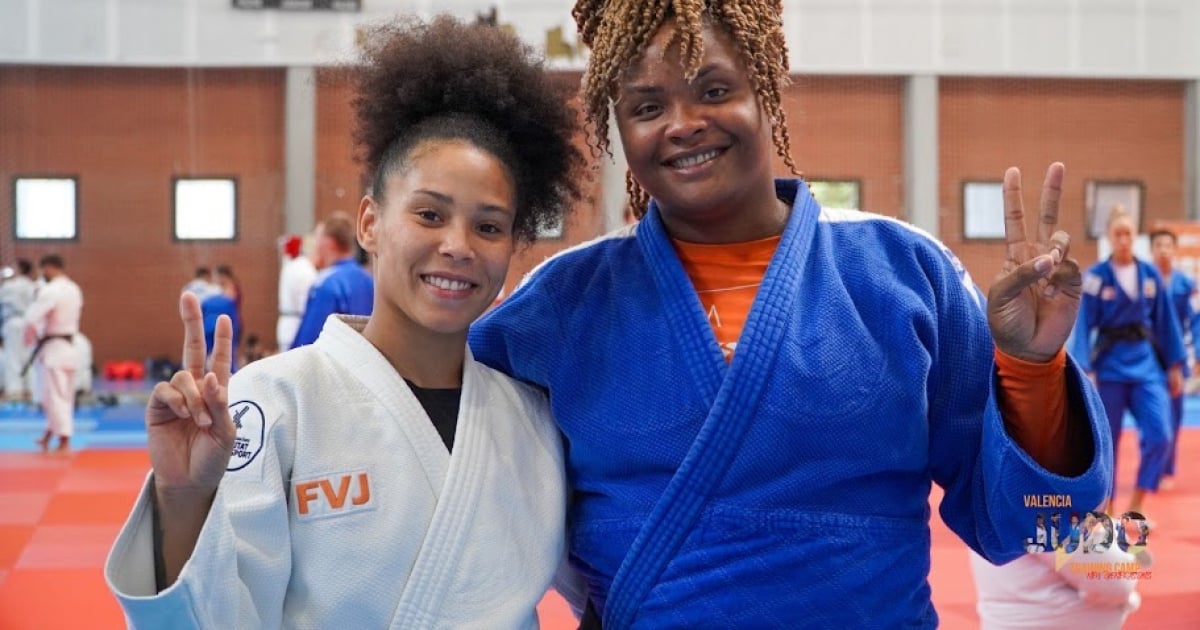Dayle Ojeda is now safe. After weeks of uncertainty following her last sighting at the Olympic Games training camp, the Cuban judoka has embarked on a new chapter in Spain. She recently spoke with journalist Matías Sartori, the press officer for the Valencian Judo Federation and Media Sport Press Agency, about her decision, her ordeal, and her dream of representing Spain at the 2028 Los Angeles Olympics.
A New Beginning in Spain
The Olympics represent an opportunity for athletes to showcase their skills on the world's biggest stage. While Paris 2024 highlighted numerous stories of triumph, some narratives unfolded behind the scenes. One such story is that of Dayle Ojeda, who fled Paris seeking a new beginning. This is her journey.
Ojeda arrived in Paris days before the Olympic Games to train with Idalys Ortiz, a prominent judoka from Cuba competing in the +78 kg category. Despite not competing herself, the 30-year-old Havana native was expected to return to Cuba before the Games commenced. However, Dayle chose not to board her return flight. After two weeks of silence, she finally surfaced in Valencia, Spain.
The social and political climate in Cuba has driven many athletes to seek better opportunities abroad. Following a successful Olympics for Cuban-born Spanish nationals like boxer Emanuel Reyes Pla and athlete Jason Díaz, Ojeda dreams of growing both personally and professionally in Spain. "I feel good, calmer and safer now, ready to start a new life," she confesses after weeks of uncertainty. From escaping Paris 2024 to aspiring for a medal with Spain in Los Angeles 2028, Dayle Ojeda is smiling once again as she trains at the Valencia Training Camp, a hub for international judokas every summer.
An Emotional Departure
Q: How were your last days in Paris before you left?
A: It was incredibly difficult. My last week was overwhelming with anxiety and fear, constantly pondering what was right for me and my family. Making such a decision is tough, but I'm convinced it was the best one.
Q: What did it mean to make this decision?
A: It wasn't easy since no one is prepared to leave their life behind. Leaving family, friends, and my homeland without saying goodbye was hard. But I don't regret it; it was the best decision for my future.
Q: How did you part ways with the team preparing for the Olympics in Paris?
A: I separated from the group and left almost in a rush. I walked nervously, made several calls, and found someone who helped me get a bus ticket. I traveled from Paris to Barcelona, staying there for a few days before heading to Valencia.
Q: What was your role in Paris?
A: My goal was to support my teammate Idalys Ortiz, a multi-medalist in the +78 kg category. I stayed in Paris until the end to support her, and then I left for Spain to pursue my athletic dreams.
Q: Why did you choose Spain for political asylum?
A: Spain feels close due to the language and culture. Although it's far from Cuba, I feel at home here. I am determined to seek political asylum and have the support of my coaches and the federation.
Q: What makes Valencia special?
A: Valencia has a world-renowned High-Performance Center and excellent Spanish coaches. National teams from various countries come here to train, making it ideal for high-level judo.
Q: What were your main reasons for leaving Cuba?
A: I wanted to improve as an athlete and feel valued for my hard work. Personal and professional growth, along with my mother's support, were key motivators.
Q: What emotions did you experience making this decision?
A: It was a mix of emotions. Sadness, fear, and uncertainty were prominent, but I also felt hope for a better future.
Q: What family did you leave behind?
A: My mother, who is my world, my nephew, and my siblings.
Q: How difficult is the situation in Cuba that forces such decisions?
A: Leaving your family and life behind is hard. For Cubans, it's even more challenging knowing you can't return. Despite this, many make this tough decision for a better future.
Q: What are your goals and dreams?
A: Like any athlete, I aspire to improve daily, represent Spain, and win international medals. I dream of being a world and Olympic medalist, which would be my way of thanking Spain and my coaches for the opportunity.
Key Questions About Dayle Ojeda's Journey
Here are some important questions and answers regarding Dayle Ojeda's escape from Cuba, her new life in Spain, and her future aspirations.
Why did Dayle Ojeda flee Cuba?
Dayle Ojeda fled Cuba due to the challenging social and political climate, seeking better opportunities for personal and professional growth.
Why did she choose Spain for asylum?
Ojeda chose Spain due to its cultural and linguistic similarities to Cuba, and because it offered a supportive environment for her athletic career.
What are Dayle Ojeda's future aspirations?
Her aspirations include representing Spain in international competitions and becoming a world and Olympic medalist.
